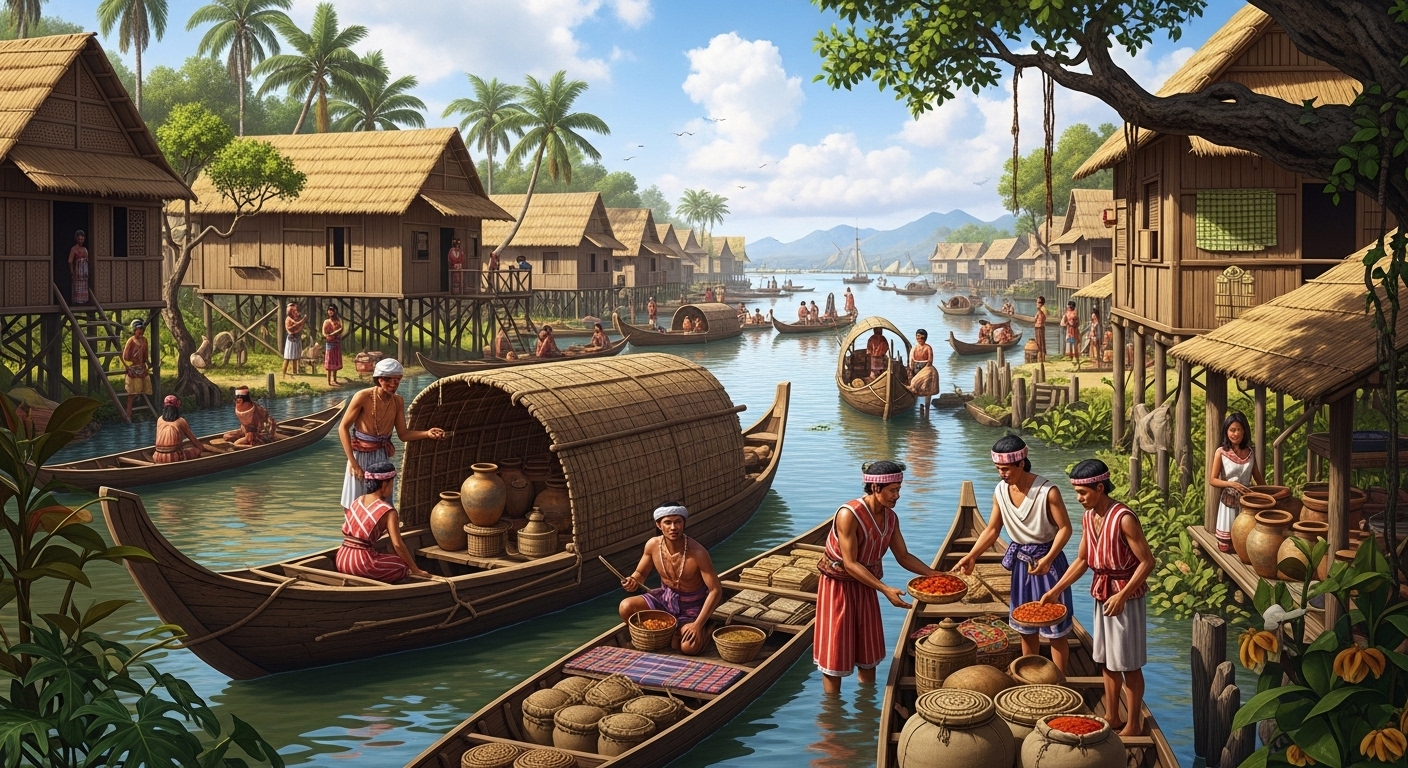Nestled side-by-side on the Iberian Peninsula, Spain and Portugal share a rich tapestry of history, culture, and even language roots. Yet, despite their proximity and intertwining pasts, they stand today as two fiercely independent nations. This closeness often sparks a fascinating question: why did Spain not conquer Portugal and absorb it into its vast empire?
It’s a common misconception that Spain never ruled Portugal at all. In fact, for a significant 60-year period, known as the Iberian Union (1580-1640), the crowns were united. However, this was distinct from a permanent, lasting “conquest” or full annexation. Portugal’s enduring independence was not a stroke of luck, but rather the result of a complex interplay of internal resilience, shrewd strategic foreign alliances, and Spain’s own imperial overstretch. Understanding this period is key to grasping why Spain did not conquer Portugal permanently.
The “Conquest” That Wasn’t: Understanding the Iberian Union (1580-1640)
A. Dynastic Succession, Not Military Invasion
The story begins not with a full-scale invasion, but with a dynastic crisis. Following the disastrous Battle of Alcácer Quibir in 1578, Portugal lost its young King Sebastian and much of its nobility, plunging the nation into a succession crisis. Philip II of Spain, a shrewd and powerful monarch, had a legitimate claim to the Portuguese throne through his mother, Isabella of Portugal.
While Philip II did eventually send military forces to secure his claim against other pretenders, notably António, Prior of Crato, this led to a “personal union” of crowns rather than a full annexation[1]. Portugal, remarkably, retained its own laws, currency, and administration, at least initially. This distinction is crucial to understanding why Spain did not conquer Portugal in the traditional sense, but rather entered a dynastic union.

B. Seeds of Discontent Under Spanish Rule
Despite the initial promise of autonomy, the seeds of discontent were sown early and deep. The Portuguese nobility and the powerful merchant class grew increasingly resentful of Spanish influence. Economically, Portugal’s vast colonial wealth was gradually diverted to fund Spain’s numerous, costly imperial wars, rather than benefiting Portugal itself[2].
The loss of autonomy and the perceived threat to a distinct Portuguese identity fueled a growing desire for self-governance. Furthermore, Portugal was unwillingly dragged into Spain’s conflicts, often to its detriment, suffering significant naval losses and trade disruptions. This growing dissatisfaction laid the groundwork for the inevitable push for true independence, explaining in part why Spain did not conquer Portugal permanently.
The Spark of Rebellion: The Portuguese Restoration War (1640-1668)
A. Spain’s Moment of Weakness
Fortune, or perhaps fate, smiled upon Portugal in 1640. Spain, under King Philip IV, was dangerously overstretched, embroiled in multiple, costly conflicts across Europe. The Thirty Years’ War was raging, and Spain was simultaneously battling revolts in Catalonia and Naples. This severe financial strain and military overextension meant Spain’s focus and resources were significantly divided.
B. The Coup and the Braganzas
Seizing this opportune moment, a group of Portuguese nobles orchestrated the “Revolution of 1640.” On December 1, 1640, they swiftly and largely bloodlessly overthrew the Spanish rule in Lisbon. John IV, the Duke of Braganza, a respected Portuguese nobleman with a strong claim to the throne, was proclaimed King of Portugal[3].

C. A War for Survival and Recognition
The coup was successful, but the fight for lasting independence was far from over. What followed was the 28-year-long Portuguese Restoration War (1640-1668). During this protracted conflict, Portugal demonstrated an unwavering determination to maintain its restored independence against relentless Spanish attempts to reclaim the throne. This prolonged struggle, showcasing Portuguese resilience, is a key reason why Spain did not conquer Portugal.
Pillars of Portuguese Success: Why Independence Endured
A. The Enduring Anglo-Portuguese Alliance
Perhaps the single most critical factor in Portugal’s enduring independence was its ancient and robust alliance with England (and later Great Britain). Dating back to the Treaty of Windsor in 1386, it’s one of the world’s oldest alliances[4]. England provided crucial military aid, financial loans, and, perhaps most importantly, diplomatic recognition and support throughout the Restoration War.
For England, supporting Portugal served a vital strategic interest: it helped maintain a balance of power in Europe and significantly weakened its perennial rival, Spain. The marriage of Catherine of Braganza to Charles II of England in 1662 further solidified this alliance, bringing not only diplomatic ties but also significant financial and military assistance to Portugal. This alliance proved vital in ensuring Portugal’s survival and is a major reason why Spain did not conquer Portugal permanently.

B. Spain’s Imperial Overstretch and Distractions
As mentioned, Spain’s imperial ambitions stretched its resources thin. Fighting wars on multiple fronts – in the Netherlands, against France, and dealing with internal rebellions like those in Catalonia and Naples – meant that Spain could never fully commit its formidable military might to subjugating Portugal. These conflicts drained Spain’s manpower and treasury, limiting its ability to achieve a decisive victory.
While Portugal was a significant concern for Madrid, it was not always the most pressing one. This allowed Portugal to consolidate its position and gain crucial time to build its defenses and alliances.
C. Portuguese National Identity and Resilience
Beneath the political maneuvers and military conflicts, a powerful force was at play: a strong sense of Portuguese national identity. The 60 years of Spanish rule, far from dissolving Portuguese distinctiveness, inadvertently strengthened it. The desire for self-governance, fueled by resentment under the Union, became a unifying force.
Effective leadership from the new Braganza dynasty and capable military commanders further bolstered Portuguese morale and fighting capabilities. This period solidified the national resolve and played a significant role in why Spain did not conquer Portugal permanently.

D. Geographical and Maritime Advantages
Portugal’s unique geography also played a role. Its extensive Atlantic coastline provided easy access for English allies to deliver supplies and troops, and allowed its navy to operate independently. Furthermore, the difficult inland terrain of the Iberian Peninsula posed significant logistical challenges for Spanish invasion forces, making a full-scale, sustained ground conquest harder to achieve and maintain.
The Treaty of Lisbon (1668) and Lasting Independence
After nearly three decades of intermittent warfare, the Treaty of Lisbon was finally signed in 1668. This treaty officially ended the Portuguese Restoration War and, most importantly, recognized Portugal’s sovereignty and independence from Spain. This historic agreement cemented Portugal’s status as an independent nation and firmly established its long-term alignment with England.

Conclusion: A Tale of Resilience, Alliances, and Imperial Limits
The question of why Spain did not conquer Portugal permanently is a testament to the complex forces that shape national destinies. It wasn’t one single factor, but a convergence of several critical elements: the specific, non-annexationist nature of the Iberian Union, Portugal’s internal drive for self-determination, the crucial and enduring support of its English allies, and Spain’s own imperial overreach and debilitating distractions.
Portuguese independence stands as a powerful testament to the strength of national identity and the strategic importance of alliances against even the most formidable empires. The “conquest” of the Iberian Union was temporary, and the unwavering will for independence ultimately prevailed, solidifying why Spain did not conquer Portugal permanently, leaving two distinct and proud nations on the Iberian Peninsula.
END



